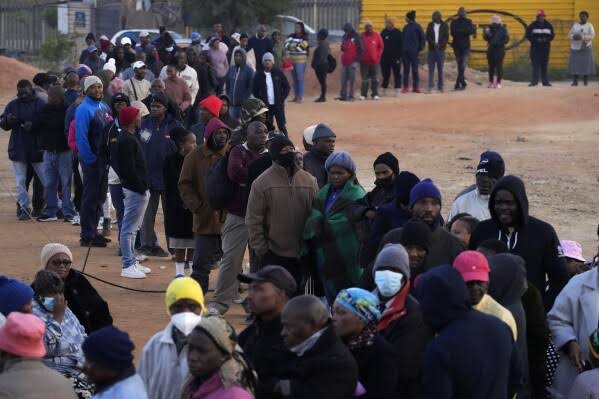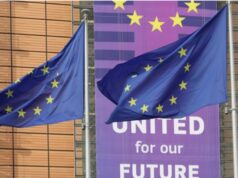South Africa’s ruling ANC is on the brink of losing its majority

South Africa’s ruling African National Congress was on the brink of losing its parliamentary majority for the first time Saturday after an election that brought a stunning drop in support for the party that led its country out of apartheid under Nelson Mandela.
Results were not yet final but with more than 97% of votes counted, the ANC had just over 40%. It is a huge slide considering the ANC has dominated South African politics for 30 years since the end of white minority rule in 1994 and at its height commanded 70% of the vote in Africa’s most advanced economy.
Election officials have said the final results from Wednesday’s election will be declared by Sunday, but it appeared they might now come in earlier. The last vote counting was still taking place from some of the 23,000 polling stations across the country’s nine provinces.
The ANC still has the largest share of votes by some way, according to the partial results. But without a majority it is set to have to negotiate a coalition with another party or parties to remain in the government. That also has repercussions for the future of South African President Cyril Ramaphosa, a protege of Mandela.
South Africans vote for parties in national elections to decide how many seats each party gets in Parliament. Lawmakers then elect the president, and if the ANC is short of the 50% mark, it will not have a majority of lawmakers and will need help from others to reelect Ramaphosa for a second and final term.
Which parties the ANC might approach to co-govern with is the urgent focus now, given Parliament needs to sit and elect a president within 14 days of the final election results being officially declared. A flurry of negotiations were set to take place and they will likely be complicated.
One possible coalition partner, the new MK Party, said one of their conditions for any agreement was that Ramaphosa is removed as ANC leader and president.
“We are willing to negotiate with the ANC, but not the ANC of Cyril Ramaphosa,” MK Party spokesperson Nhlamulo Ndlela said.
More than 50 parties contested the national election, but given how far off a majority the ANC appears to be, it is likely that it will have to approach one of the three main opposition parties.
The main opposition Democratic Alliance has around 21% of the vote with counts still coming in; the MK Party of former President Jacob Zuma has 14% and the Economic Freedom Fighters has 9%. They have very different ideologies and could push the ANC and South Africa in very different directions in any coalition.
MK and the far-left EFF have called for parts of the economy to be nationalized. The centrist DA is viewed as a business-friendly party and analysts say an ANC-DA coalition would be more welcomed by foreign investors.
Despite the uncertainty, South African opposition parties were hailing the new political picture as a much-needed change for the country of 62 million, which is Africa’s most developed but also one of the most unequal in the world.
South Africa has widespread poverty and extremely high levels of unemployment and the ANC has struggled to raise the standard of living for millions. The official unemployment rate is 32%, one of the highest in the world, and the poverty disproportionately affects Black people, who make up 80% of the population and have been the core of the ANC’s support for years.
The ANC has also been blamed — and apparently punished by voters — for a failure in basic government services that impacts millions and leaves many without water, electricity or proper housing.
“We have said for the last 30 years that the way to rescue South Africa is to break the ANC’s majority and we have done that,” Democratic Alliance leader John Steenhuisen said.
Nearly 28 million South Africans were registered to vote and turnout is expected to be around 60%, according to figures from the independent electoral commission that runs the election.




